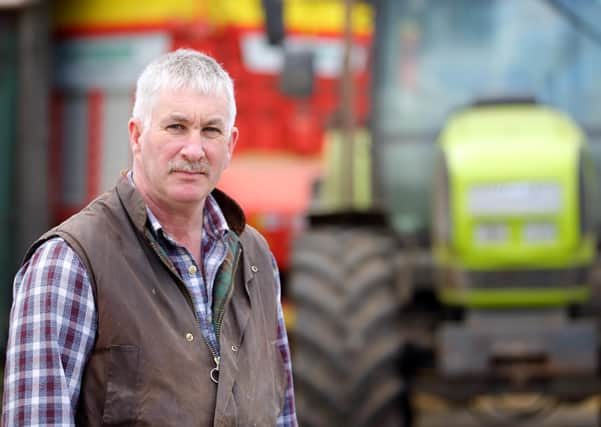Industry ‘hanging in the balance’


The draft legislation proposes a net carbon zero target established for Northern Ireland (NI) by 2045. From the outset, the UFU representatives made it very clear that the Union supports climate change legislation and the need to tackle emissions, but proposals must be fair and credible, and deliver a just transition for everyone.
Climate change must be also backed up with expert advice relevant to NI, allowing local farmers to reduce emissions on farm without drastic livestock reductions enabling them to continue to feed the nation.
Advertisement
Advertisement
President Victor Chestnutt said their members have clearly indicated that they have no confidence in the Private Member’s Bill and those who are supporting it.
Committee members were told that without proper scrutiny of the Bill the future of the Northern Ireland agri food sector is ‘hanging in the balance.’
Mr Chestnutt said: “The UK is approximately only 60-70 percent self-sufficient on a calorific basis regarding meat, milk and eggs from domestic livestock production. There continues to be a demand for meat and dairy products which is why NI and the rest of the UK, must not achieve its climate change ambitions by exporting production and our greenhouse gas emissions to other countries: this would simply cause carbon leakage.
“It makes no sense to import product from countries where emissions are higher and standards are lower to meet climate change targets. Yet, this is exactly what would happen if the Private Member’s Bill became law.”
Advertisement
Advertisement
He continued: “We oppose a net zero target of 2045 for NI because it will have very substantial impacts on the agri-food sector, the rural economy and rural communities. It is completely unacceptable.” The UFU highlighted the assertion that no economic impact or rural needs’ assessment has been carried out on the Private Member’s Bill, which they say is an inexcusable omission: so much so that in the absence of this information, the UFU and others have commissioned independent consultants to carry out this work for the agri-food sector. The UFU deputation also pointed out that Lord Deben, chair of the Westminster Climate Change Committee (CCC), clearly stated in his evidence to the same committee that it is ‘not achievable’, would be ‘morally wrong’ and ‘not scientifically possible’ for NI to reach net zero before 2050.
CCC advice indicated that even with a 50 percent cut in livestock numbers and substantial increase in forestry, NI will not hit net zero by 2050 never mind 2045.
Victor Chestnutt further explained: “The correct legislative framework is needed to allow the good work that farmers are currently doing to combat climate change to continue. The Private Member’s Bill does not offer this. It should have never been used to bring climate change legislation forward in the first place.
“It’s the wrong mechanism and would not have been used for other major policy issues. As a result of which, proper scrutiny has not taken place and the future of our renowned agri food industry is hanging in the balance.” According to the UFU, Department of Agriculture, Environment and Rural Affairs officials have repeated concerns about the Private Member’s Bill target.
Advertisement
Advertisement
Victor Chestnutt concluded:“Northern Ireland is the only region to ignore expert advice when proposing a climate change target. When you have experts such as the internationally renowned CCC clearly spelling out their concerns about a 2045 target with no credible counter arguments that we have seen or heard being put forward, how does this instil confidence in the farming community?
“Our members have clearly indicated that they have no confidence in the Private Member’s Bill and those who are supporting it.”